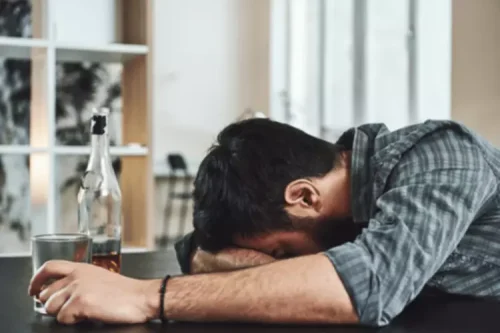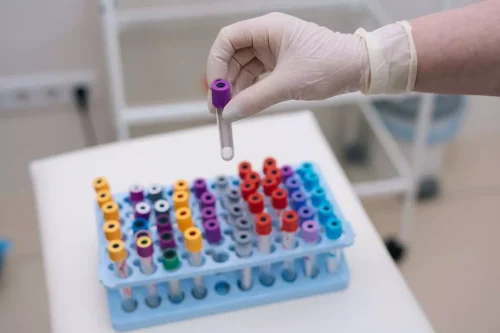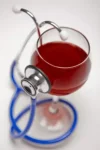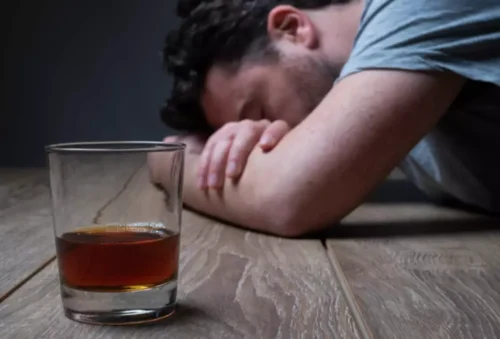
Long-established research shows the body metabolizes alcohol differently at different times of day. Studies have shown the body is more effective at processing alcohol at certain times of the day than others. While alcohol can help you fall asleep, it does not help you stay asleep during the later hours of the night. It may increase the likelihood of waking up in the middle of the night, resulting in grogginess the next morning. Some people may resort to drinking alcohol as a sleep aid or agent that initiates sleep. When a person drinks alcohol, doing so in small or moderate amounts several hours before sleep can reduce the chance of sleep issues.
- Whether you have had one or multiple drinks, it’s best to wait for your body to fully process the alcohol before heading to bed.
- During sleep, the body cycles through all of these stages every 90 to 120 minutes, with NREM sleep dominating the first part of the night and REM increasing during the second part of the night.
- Having alcohol before bed can also increase your risk of falls if you get up during the night, due to instability and unsteadiness, notes Avidan.
- PSG sleep findings during the first 8 weeks of abstinence include increased SOL and stage 1 sleep and decreased TST and SWS % (Gillin et al., 1990b, Gillin et al., 1990a, Moeller et al., 1993, Le Bon et al., 1997, Brower et al., 2001a).
- Simply cutting back or giving up alcohol or other drugs can be enough to reverse the negative impacts on your sleep (and can greatly improve your health overall).
Nutrition and Sleep: Diet’s Effect on Sleep

Your deep restful sleep tends to be more prevalent in the first few hours but decreases during the second half. A small study showed that an estimated 20 to 30 percent of people with insomnia report using alcohol as a “sleep aid.” And 67 percent of these folks say it’s good at its job. After a few hours of sleep, alcohol can cause you to wake up and have a difficult time going back to sleep.

0 Evoked Potentials during sleep
This is not to suggest that dehydration “causes” hypertension, but it certainly has the potential to contribute to a disease that affects one in three people in the United States. A turmeric latte can be a good alternative, especially if you can’t sleep due to inflammation. Poor alcohol insomnia sleep and inflammation are linked, and turmeric has anti-inflammatory properties. You’ve probably heard that a glass of warm milk before bed can be calming. For some people, milk might also cause digestive discomfort if they’re sensitive to the lactose in dairy products.
The Connection Between Diet, Exercise, and Sleep
The influence of alcohol on sleep therefore needs to be evaluated by exploring both the short term effects on sleep (cross sectional data) and the long-term consequences (longitudinal data of repeated measures). At present, most literature is based on cross-sectional studies and thus cannot assess direction of effects6. During the second half of the night, sleep becomes more actively disrupted. As alcohol is metabolized and any of its sedative effects dissipate, the body undergoes what scientists call a “rebound effect.” This includes a move from deeper to lighter sleep, with more frequent awakenings during the second half of the night. (These may be micro-awakenings that the sleeper doesn’t even remember—but they still interrupt the flow, and quality, of sleep.) During the second half of the night, sleep architecture shifts again away from normal, with less time spent in slow wave sleep.
Water—During the Day
If this doesn’t solve the problem, it’s time to consider issues with the prostate (for men) and bladder (for men and women). Animal data indicate that administration of GABAergic antagonists lead toincreased REM (Sanford et al. 2003; Xi, Morales, and Chase 2001, 1999). Moreover, it can take one hour for your body to process one serving of alcohol. If you’ve had several drinks, it’s best if your last drink is finished at least several hours before you go to bed.
Alcohol can help people feel more relaxed and sleepy, but it’s also linked to poor sleep quality and duration, according to the Sleep Foundation, a U.S. nonprofit organization. Generally, the more a person drinks, the more their sleep quality suffers. It’s not because I don’t appreciate a glass of wine with a great meal, or a few beers on a hot summer evening. It’s because I know what alcohol can do to sleep and healthy circadian rhythms. In addition to the homeostatic drive, the normal sleep-wake cycle is also linked to an underlying circadian rhythm. The suprachiasmatic nucleus within the hypothalamus in the brain is the master clock that synchronizes a host of internal rhythms with the sleep-wake cycle being one of them.
- Consuming two servings of alcohol per day for men and one serving for women can reduce sleep quality by 9.3%.
- The gut and its microbiome are often referred to as the body’s second brain, and operate under powerful circadian rhythm activity.
- Alcohol interferes with the brain’s ability to receive chemical messages involved in breathing, which decreases the body’s respiratory drive and increases the likelihood of pauses in breathing.
Assessment of Sleep measures
Though alcohol can have a sedative effect, it has also been linked to sleep disorders like insomnia. If you’re having trouble falling or staying asleep, alcohol consumption could be a contributing factor. Alcohol also has variable effects on sleep, and if you are used to drinking most nights or every night, your body could be going through a mild withdrawal where insomnia is very common. I expect this to get better over time, and I recommend avoiding sleep medications, either over-the-counter or prescription. If the sleep problem continues, there are behavioral treatments you can try.

Will a small amount of alcohol affect my sleep?
“People tend to sleep better the first half of the night and then have more sleep fragmentation during the second half of the night,” says Dr. Benjamin. With extended use of alcohol over time, there can be long-term concerns, too. Many who abuse alcohol often do it well into the night and oversleep into the next day. Then, as withdrawal from the drug or alcohol occurs there’s a big sleep-wake reversal which then needs to be addressed.
Alcohol Dependence and Period Limb Movement Disorder (PLMD).
“It is best to drink early enough in the evening so that the alcohol is metabolized before going to sleep,” adds Benjamin. Research shows that alcohol essentially disrupts the normal deep sleep and rapid eye movement (REM) sleep cycles (the stage of sleep when most dreaming happens), which can lead to shorter sleep time and more fragmented and lighter sleep. “Alcohol tends to destroy sleep architecture [structural organization of normal sleep] and delay dream sleep and leads to more awakenings and arousals,” says Alon Avidan, MD, MPH, director of the UCLA Sleep Disorders Center in Los Angeles. The same study found that using alcohol as a sleep aid led to moderate improvements in sleep for the first 6 days. But after that, people experienced a diminished quality of sleep and faced a much higher risk of alcohol dependence.




